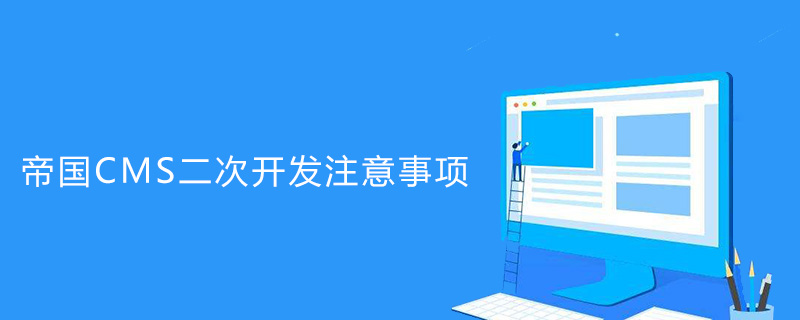Home >CMS Tutorial >Empire CMS >What are the precautions for the secondary development of Imperial CMS?
What are the precautions for the secondary development of Imperial CMS?
- 王林Original
- 2019-11-05 17:11:322166browse

1. Do not change in the original system
It is recommended that plug-ins that will not cause vulnerabilities should be done independently and not be changed in the original system. For example, today's AJAX login, registration, and download can still be logged in, registered, and downloaded without AJAX. Even if the user finds the old login connection, the old registration address, and the old download address, there will be no loopholes.
2. Write all the codes into your own files
If vulnerabilities will occur if you do not change the original system files, then do not write the codes piece by piece in the original files. , write all the code into your own file, in function units, reference the file to the appropriate location, insert the function into the place to be changed and add comments.
3. Some file systems will be regenerated. Do not handwrite the code into these files.
Everyone knows that e/class/config.php is the configuration file (ecms7 .0 version is e/config/config.php), which contains the entire site parameter settings, model information, etc. It is updated frequently, and no one writes code here by hand.
4. Do not place the files you create randomly
The directory structure used by trylife so far is as follows:
e/trylife/common/ Place commonly used The JQuery js plug-in’s own commonly used PHP function files
e/trylife/plug-in 1 English directory name/js php html and other necessary files unique to this plug-in
e/trylife/plug-in 2 English Directory name/
………
e/trylife/plug-in n English directory name/
Recommended tutorial: Empire CMS Tutorial
The above is the detailed content of What are the precautions for the secondary development of Imperial CMS?. For more information, please follow other related articles on the PHP Chinese website!

